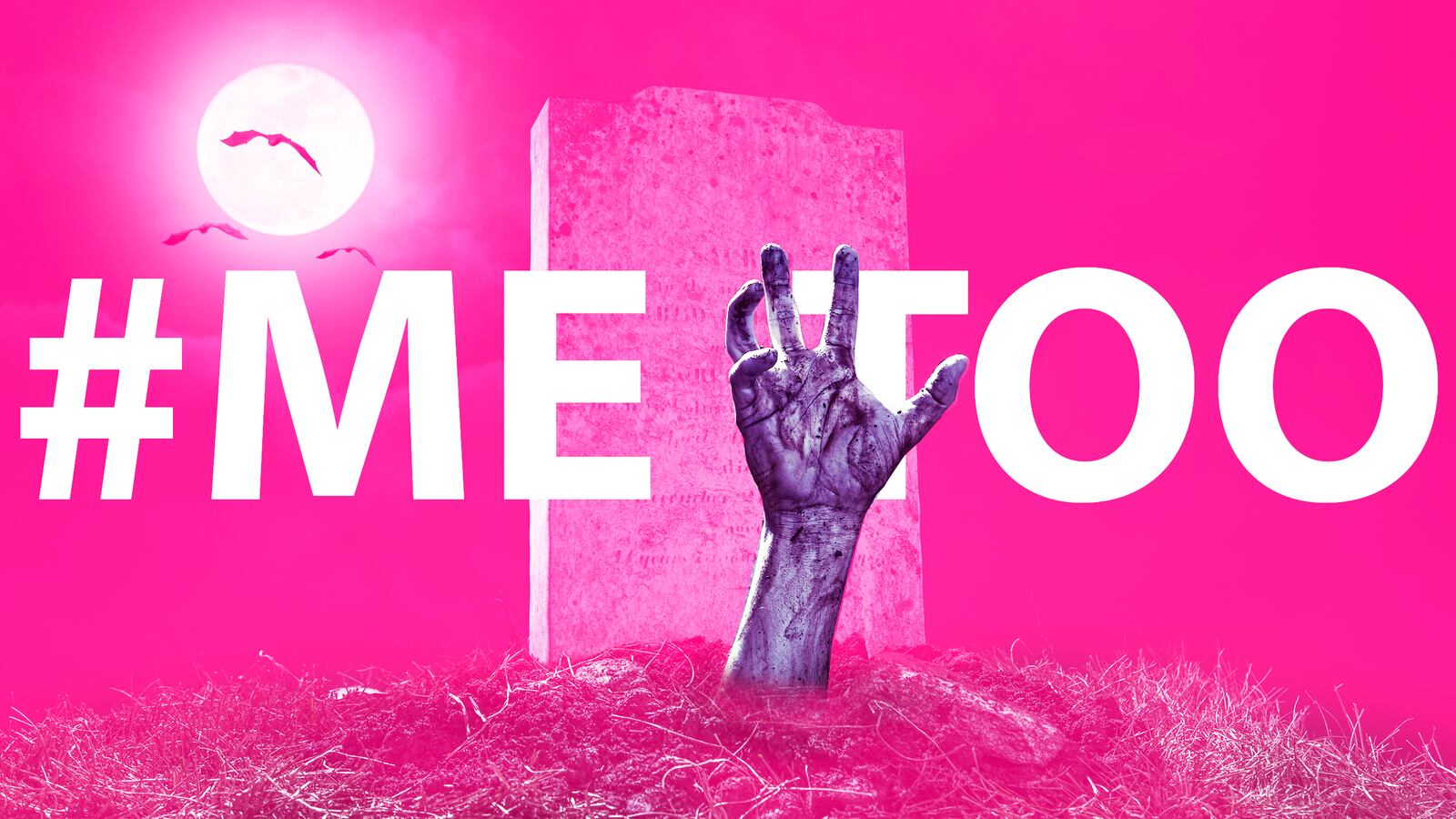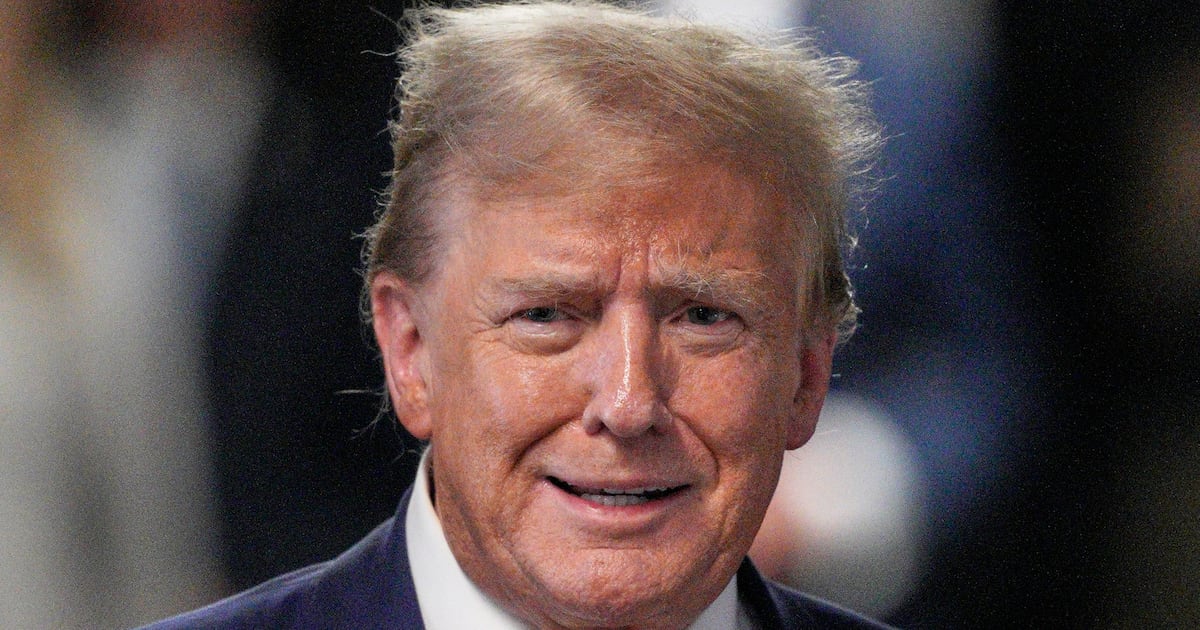My parents kept a small flock of chickens when I was a kid. When I was really small—too small to fully process what I was witnessing—I’d watch my father butcher the ones we’d raised for meat. It was always fast. But after their heads had been lopped off by the axe, what was left of them would flop around like feathered basketballs for longer than it seemed like they should. Their bodies carried on like their heads were still attached.
I thought about those chickens a lot last fall, as the #MeToo movement decapitated the careers of men from a wide cross-section of industries. They would lay low like the whole thing would blow over, or they’d react defensively, or they’d do one and then the other. You could read their envisioned future comebacks between the lines of their public apologies. Like their heads were still attached. Back then, I’d see a flailing apology and think, you don’t even know you’re dead.
Those who fancy themselves voices of reason warned against “killing” men’s careers after #MeToo stories broke, as though the public is a single entity that can be reasoned with. After CNN reporting revealed Mark Halperin to be a habitual creep, my Daily Beast colleague Lloyd Grove got Halperin’s fellow pundit Mike Barnicle on the record saying, “He deserves to be punished for what he did. He deserves to have what he did be deplored. But does he deserve to die? How many times can you kill a guy?”
Now that six months have passed since the first wave of #MeToo stories, several men have decided that enough time has passed that they can resurrect their dead careers as though nothing ever happened. They live! But were they ever dead?
Some men did face professional annihilation as a result of their behavior’s exposure. Harvey Weinstein, who it seems got into film in order to pursue his true passion of sexual assault, has been ostracized, his name has been stripped from things, his earth salted (mostly with his own self-pitying tears). Steve Wynn, the casino magnate/RNC finance chair who allegedly operated from a creepy playbook very similar to Weinstein’s, has lost his business (the RNC, interestingly enough, still hasn’t returned the money he donated, since the money itself didn’t sexually coerce any masseuses).
But those men are the exception, not the rule. The other day, I was discussing #MeToo with a female friend. I told her that I believed that society had changed irreversibly, that certain behavior was no longer tolerated in any industry, that we’d scraped the mold off. She shrugged and quipped: “Bill Cosby’s still touring.”
No, really, he is.
And it’s not just Cosby. Woody Allen just last year made a movie with Justin Timberlake, a man who wore a Time’s Up pin to an award ceremony like people wouldn’t say anything. People still went to see it. Casey Affleck is still making movies. R. Kelly is still disgusting and people still listen to his music.
Given the durability of the male career, it makes sense that men felled during #MeToo’s initial catharsis last fall would attempt comebacks. In the last few weeks, a handful of the men accused of, let’s call it “monstrousness-minus,” are testing the waters.
Matt Lauer is hoping the world of New York media will use its secret desk button to unlock the doghouse, so he can get back to bringing America his aggressive brand of beige again. Louis CK’s comeback, who some in comedy seemed convinced was imminent, is extra-imminent now. Mario Batali is “eyeing his second act.” Charlie Rose went out with Sean Penn. Al Franken might be working on a third act.
What should we make of all these attempted #MeToo comebacks? Can someone exposed for these types of misdeeds get another chance professionally? More importantly, should they? If I hated a man’s first or second act, then why would I stick around after the intermission?
The socially progressive party line attitude toward these questions seems to be blanket rejection. I understand where people are coming from in wanting to purge those who committed sexual misconduct from their industries, forever. Sexual misconduct robs the world of potential. Being harassed fucking sucks and there’s something unsettling about imagining a sexual harasser being able to one day mine his own feelings about being a sexual harasser and profit from it. But there is no actual court of public opinion, there is no boss of comedy, or movies. That means that in the end, we’ll all have to decide on our own whether we’ll indulge men who have done bad things. Over the next few months, we’re all probably going to spend a lot of time and energy assessing the sincerity of male apology tours.
I’ve struggled with how to approach the non-bad work of bad men.
A few years back, I went to a screening of Woody Allen’s Manhattan scored live by the New York Philharmonic. I can’t say that seeing Allen have a romance with a teenager onscreen was a pleasurable experience, even alongside a live orchestral rendition of “Rhapsody in Blue.”
An R. Kelly song played at a bar always distracts me from whatever it was I was talking about (last time it happened, I had to spend the four minutes of “Ignition” railing on what trash R. Kelly is to whoever will listen).
The fact that Sean Penn is such an aggressively shitty writer makes me happy, because he seems to be an aggressively shitty person.
And yet, while I know I can’t consume art made by these men anymore, I also don’t want to destroy it, nor do I want to prevent other people from consuming it if they choose. It exists. I don’t want to burn it down. I don’t want to pretend it never existed. I just wish we could somehow process it with disclaimers about their moral cost, like confederate statues.
The truth is, there are no good answers to these questions. But there are certain principles that should underline our collective thinking about them. Chief among them is that it should be at least as hard for a man to resurrect his career post-#MeToo as it was for the women he harassed to continue to advance in their fields. That’s to say, it should be very fucking difficult. But not impossible.
It’s silly to paint every man implicated in #MeToo with the same broad brush. It’s shortsighted to dismiss everything every one of those men does post-#MeToo as opportunistic trash. A lot of it will be! But not all of it. There’s a difference between opportunistic trash and a thoughtful evolution that acknowledges past transgressions and proactively works to right those wrongs.
To borrow a line from Louis CK: Of course. But maybe! Of course sexual harassment is bad. But maybe somebody like Louis CK might have some important thoughts about coming to terms with the harm he’s caused, especially if he, say, donates part of the proceeds from his next tour to organizations that empower women.
Aziz Ansari would make a positive contribution to this discussion if he were to turn the story that branded him with a moral question mark into a carefully crafted episode of Master of None. Millennials are shitty at communicating about sex and millennial men have a difficult time behaving empathetically when they’re horny; let’s explore that with some self-awareness.
I’ll cast the most gimlet-y of gimlet eyes on every post-#MeToo comeback attempt. I’ll have to remind myself, over and over, that sometimes shitty people make good art or have politics I agree with, and that a lot of good art was made at the expense of women’s well-being. It’s an uncomfortable truth to face, but refusing to live in a world where both art and evil exist concurrently means that our world is split into two, each living in their own preferred version of half-reality. I can’t reject art I haven’t seen. I can’t reject apologies I haven’t heard.
That being said, fuck James Toback.






